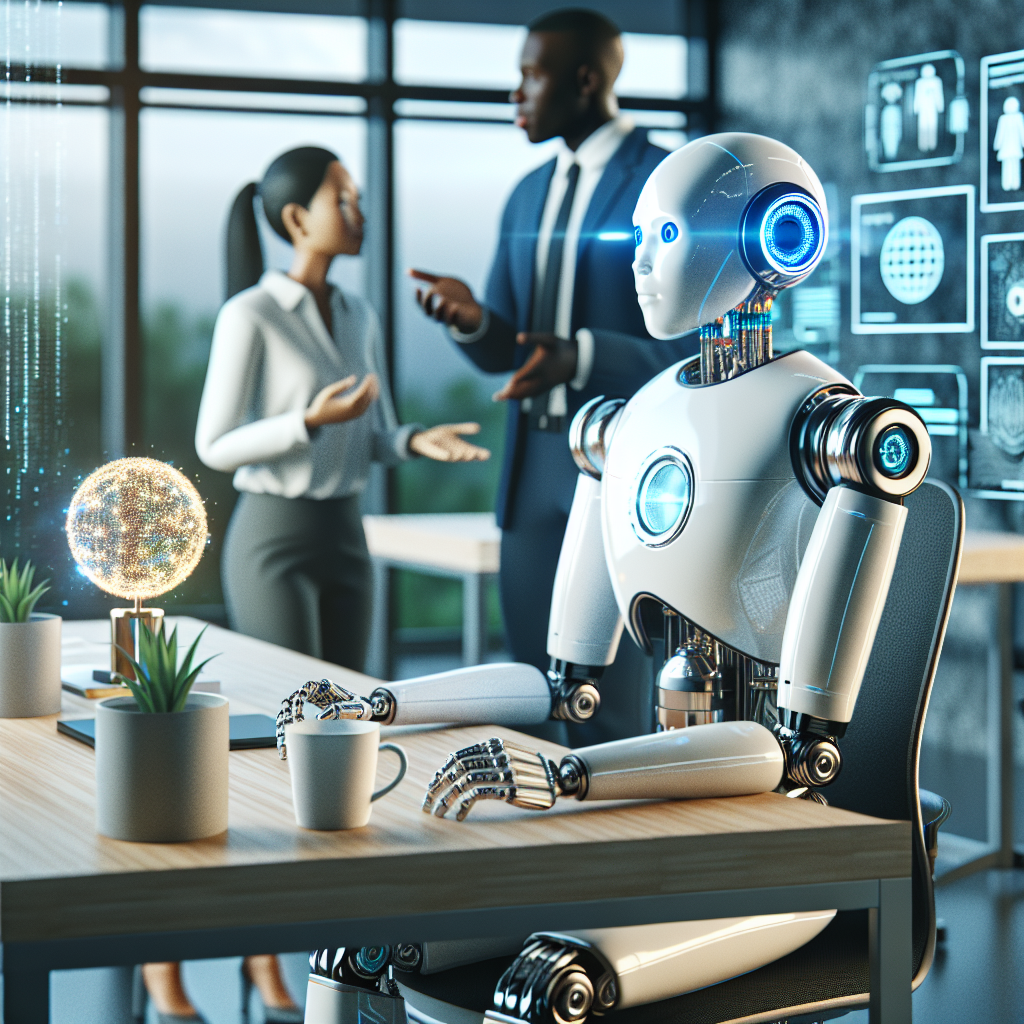How AI is Shaping the Landscape of Work by 2025
Artificial Intelligence (AI) has evolved from a futuristic concept to a practical force driving change across industries. As we approach 2025, the question on many minds is clear: will AI take your job? The reality is complex. AI influences various sectors differently, creating a shift in job roles rather than outright replacement. Understanding how AI integrates into the workplace is key to navigating the future. This article explores AI jobs, how AI affects employment, and what workers can expect in the coming years.
The Evolution of AI Jobs: What Does the Future Hold?
As AI technology advances, the nature of jobs changes. Some positions are automated, while others are enhanced or newly created.
Automation vs. Augmentation
AI performs repetitive, data-heavy tasks efficiently, leading to automation in areas like manufacturing and data entry. However, many AI applications augment human work—for example, AI-powered tools help doctors diagnose diseases faster or support customer service reps with real-time information.
Emerging AI Job Categories
New roles are emerging in AI development, implementation, and oversight:
– AI ethicists who ensure responsible AI use
– Data scientists managing large datasets for AI training
– Machine learning engineers building adaptable algorithms
– AI trainers fine-tuning systems with human input
The rise of AI also fuels jobs indirectly, such as AI hardware manufacturing and maintenance.
Which Jobs Are Most Vulnerable to AI Replacement?
Assessing which roles face the most risk helps workers plan for change.
Repetitive and Routine Tasks
Jobs involving predictable, rule-based processes are most susceptible, such as:
– Assembly line work
– Basic data processing
– Routine customer support queries
– Inventory management
AI systems can perform these tasks faster and with fewer errors.
Moderate-Risk Occupations
Certain jobs blend routine and creative aspects and may see partial transformation:
– Accountants using AI for faster reconciliation
– Paralegals with AI-assisted legal research
– Journalists leveraging AI for data-driven stories
Workers in these fields will likely transition to higher-level problem-solving or managing AI tools.
How Workers Can Adapt to the AI-Driven Job Market
Proactively embracing change is the best strategy to remain relevant.
Skills to Develop for AI Jobs
– Digital literacy: Comfortable use of AI tools and platforms
– Critical thinking: Evaluating AI outputs and decision-making
– Emotional intelligence: Managing interpersonal relationships, a task AI struggles with
– Creativity and innovation: Generating ideas beyond algorithmic limits
– Continuous learning: Staying updated with evolving AI trends
Exploring New Career Paths
Consider industries and roles growing with AI, such as:
– AI product management
– Cybersecurity to protect AI systems
– Human-AI interaction design
– AI policy and governance
Upskilling programs, MOOCs, and certifications can support transitions into these areas.
The Positive Impact of AI on Job Creation
Contrary to fears, AI also generates opportunities.
Job Growth in AI-Enhanced Sectors
Technology companies, healthcare, and finance benefit significantly from AI enhancements, creating jobs like:
– Data analysts interpreting AI results
– AI system maintenance technicians
– Personalized education content creators using AI tools
Case Study: AI in Healthcare
AI’s integration in healthcare has led to better patient outcomes and created new roles, such as AI specialists working alongside clinicians. AI-assisted diagnostics and robotic surgeries demand skilled personnel, widening the job market.
Preparing for an AI-Integrated Workplace Culture
Beyond technical skills, the workplace environment is evolving.
Collaboration Between Humans and AI
Successful workplaces in 2025 will emphasize cooperation between people and machines to enhance productivity. Workers must learn to trust AI while maintaining oversight.
Ethics and Transparency
As AI decisions impact jobs and society, organizations increasingly focus on ethical AI use. Understanding these frameworks will be essential for employees in AI jobs and their managers.
Looking Ahead: What to Expect in 2025 and Beyond
The future of work is a blend of challenges and opportunities.
– AI will automate routine tasks but create space for human creativity and insight.
– Workers will benefit from continuous reskilling and embracing AI collaboration.
– Policy and education systems will evolve to support a workforce skilled in AI integration.
For those anxious about AI jobs, becoming adaptable and proactive is the key to thriving in this dynamic environment.
Explore more insights on AI’s impact on work and future skills at khmuhtadin.com.
Embrace AI, upgrade your expertise, and position yourself for success in 2025 and beyond. The transformation is underway—make AI work for you.

Leave a Reply